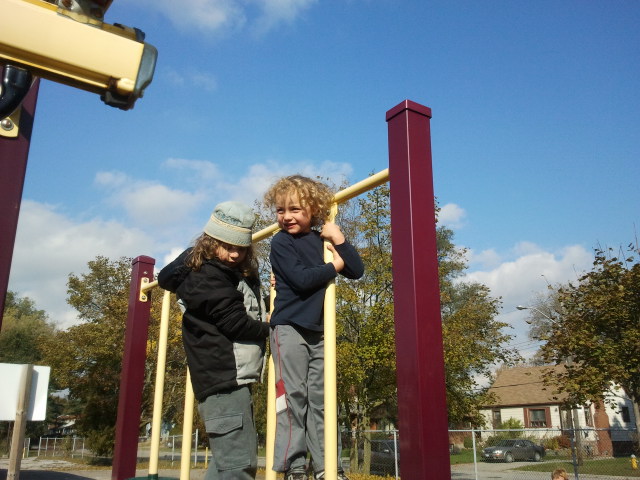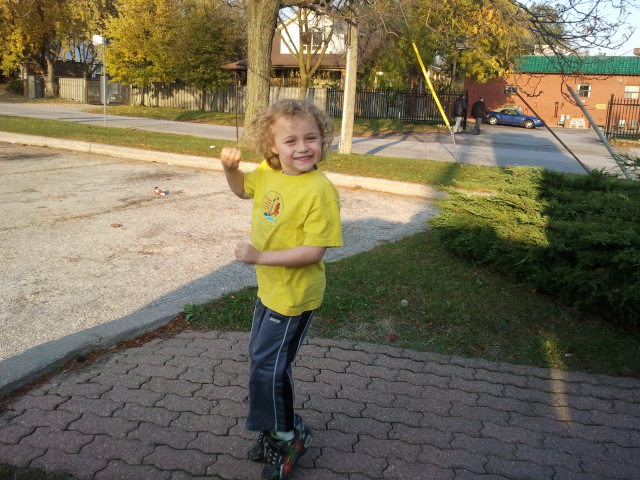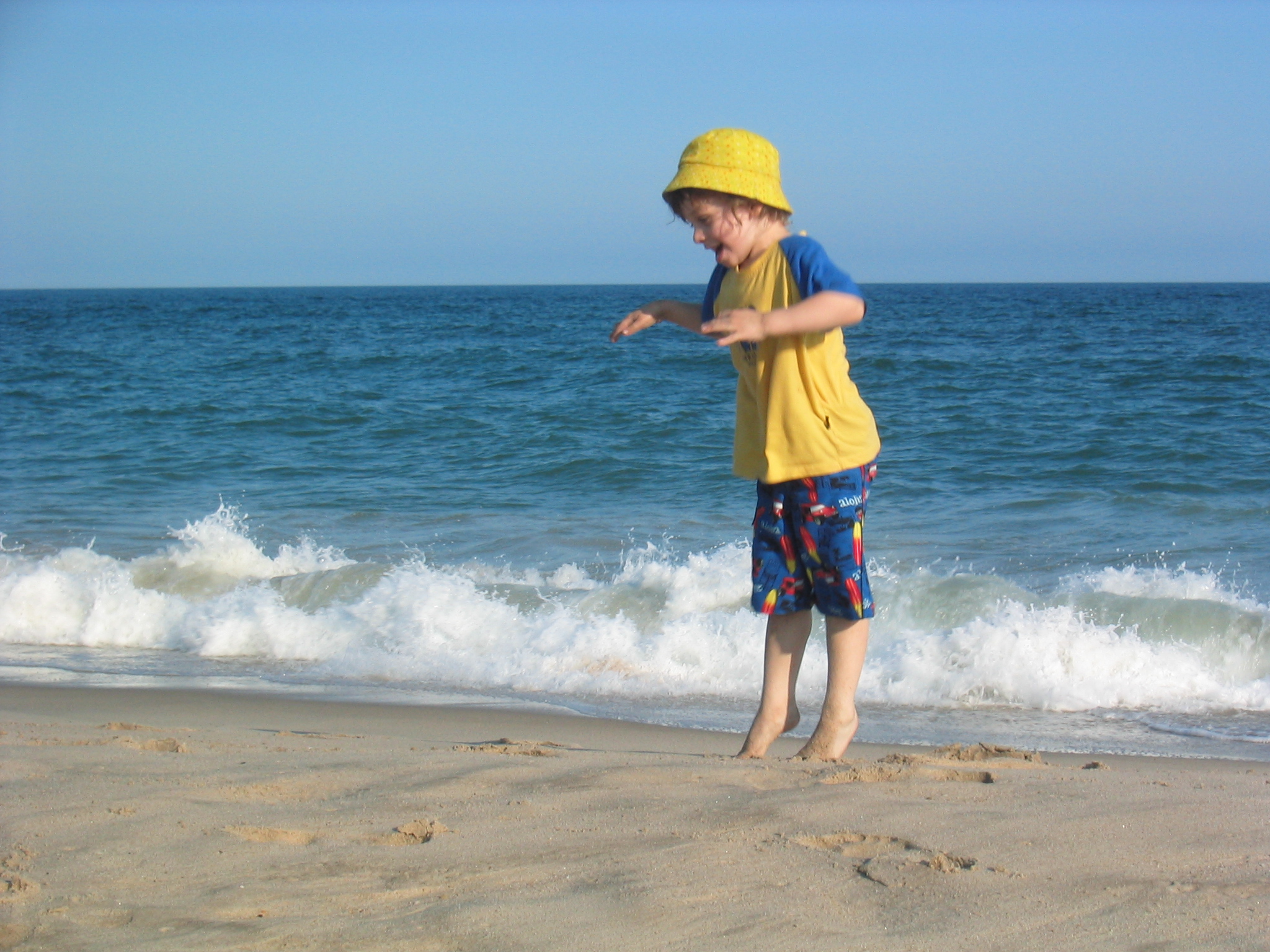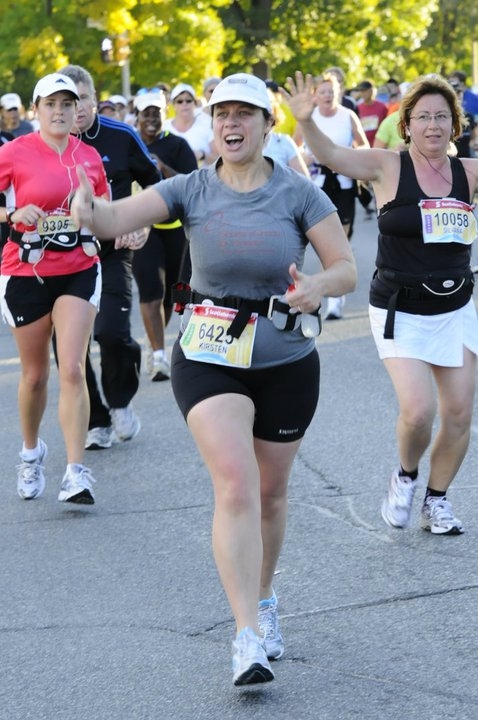 This morning, I got up extra-early – despite my body screaming at me in protest at being yanked out of bed at such an ungodly hour – and went to the gym. It was so early that, even with the recent time change that gives us an extra hour of daylight in the mornings, it was pitch-dark.
This morning, I got up extra-early – despite my body screaming at me in protest at being yanked out of bed at such an ungodly hour – and went to the gym. It was so early that, even with the recent time change that gives us an extra hour of daylight in the mornings, it was pitch-dark.
My drive to the gym was uneventful. It usually is. There’s not really a lot that can happen during a two-minute drive. By the time I got there the parking lot was already about half-full. I parked the car, grabbed my bag and got out. When I turned around I was surprised to find myself face-to-face with a large policeman who was standing beside his cruiser.
“Good morning!” he said.
I looked blankly around me for a few seconds before concluding that since no-one else was in the parking lot, the policeman was talking to me.
“Hi!” I said brightly. Remember that “bright” can be a relative term. It was just a smidgeon after five in the morning.
“This your car?” he asked.
Again, I looked around, this time at the other cars in the parking lot. Gesturing stupidly at my old Chevy van, I said, “This one?” as if the policemen could have been referring to any of the other fifteen cars that I had just gotten out of.
“Yes,” said the policeman, without showing any trace of impatience. He probably encounters a lot of dimwits early in the morning.
Cripes, I thought suddenly. Does he think I stole the car?
I assured the policeman of my status as the car’s rightful owner, and the conversation that ensued was very boring. It involved a headlight that was out, a promise (on my part) that it would be taken care of right away, and an assurance (on his part) that he would not write me up for the $110 ticket.
Coincidentally, when I was riding the subway to work about ninety minutes later, the pair of men sitting across from me were talking about the evil entity that is the police force. From what I could glean, one of them had received a speeding ticket over the weekend and was now fighting it. This story led to a rant about how policemen as a breed are awful money-grabbers who are rude to the public and never do anything useful.
As I listened to this, I thought back to my earlier encounter. The policeman had been very nice to me, even though I was displaying the intelligence of a dead tulip. Technically, he would have been within his rights to give me a ticket; instead, he had done me the service of telling me – helpfully and non-confrontationally – that my headlight needed fixing.
This all makes me think back to a day about two years ago when I was at our local coffee shop with James, who was then almost four. My two boys had been playing the back yard, and George had pushed James into a brick wall. James had ended up with a bleeding face and more than a few tears, so I left George with my mother-in-law and took James out for a donut.
We sat next to a window in the coffee shop, James proudly sporting the gauze patch on his cheek. When a police cruiser parked outside, James waved enthusiastically at the policeman, who waved back cheerfully. When the policeman entered the coffee shop, he came right up to our table and started chatting with James. He introduced himself as Larry, told James about his own little boy who was about the same age, and on James’ request, he took James outside to look at the police car. He capped off the exchange by pulling a Thomas the Train sticker out of his pocket and putting it onto the gauze patch.
James thought Christmas had come early that day. He spoke about Larry the policeman for weeks, and a couple of years later, he still remembers him. What I remember of that day is that a police officer took the time to speak to a child. He instilled in my son the idea that the police are there for the community, and that they are trusted sources of help.
There are exceptions, of course. There are the policemen who will be rude and arrogant, and who will power-trip you right into the middle of next week. But it is important to note that the exceptions are just that – exceptions. It seems a bit harsh to diss the entire police force based on the actions of a few of its members.
I want my children to know that if they are ever in trouble, they can go to the police, and the police will help them.
I am truly grateful for everything the police do. These people, who willingly put themselves in dangerous situations in order to protect their communities, are heroes.
(Photo credit to grainger. This picture has a creative commons attribution license.)














